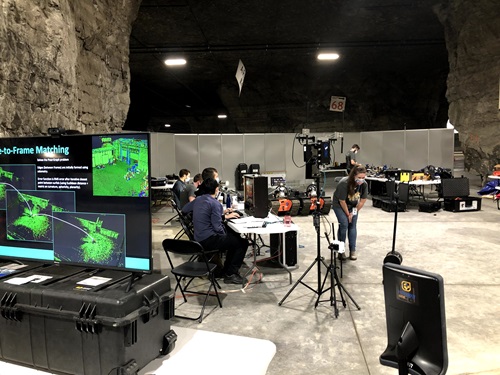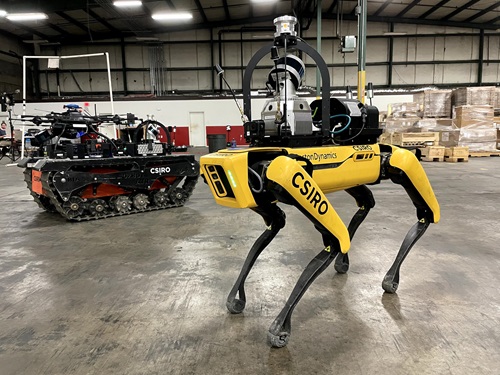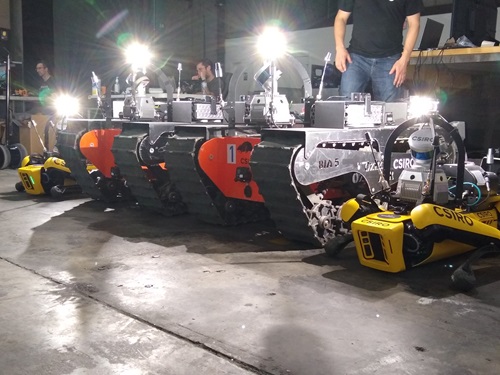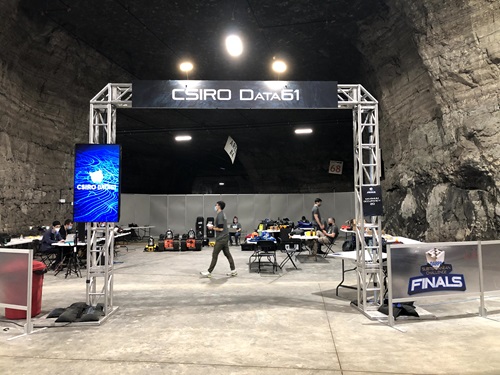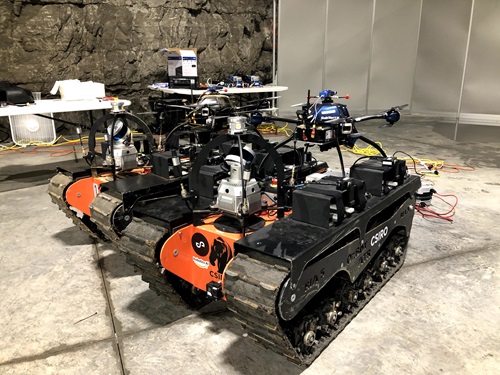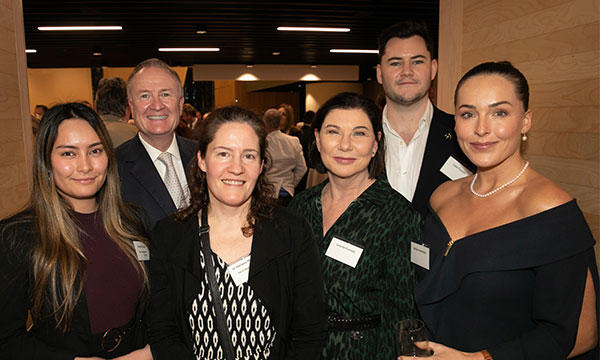Organised by the US Government research agency DARPA and spanning a three-year-period, the Subterranean Challenge was designed to push the boundaries of autonomous robotic technology.
Scientists were tasked with remotely running the robots in an underground environment that simulated a real-world scenario. This included locating models representing lost or injured humans, backpacks, or phones, as well as variable conditions such as pockets of gas.
Points were awarded for correct identification and location of items, mapping the terrain, and maintaining autonomy and communications throughout.
The competition culminated in a final event held inside the Louisville Mega Cavern in Louisville in Kentucky, with results announced in the US overnight.
Made up of members from CSIRO’s Data61, CSIRO spin-out robotics company Emesent, and the Georgia Institute of Technology, the team competed under the name ‘CSIRO’s Data61’ and won the preliminary round before being awarded second in the final circuit.
Leader of team CSIRO’s Data61 and CSIRO’s Robotics group leader, Dr Navinda Kottege said:
“This is an amazing result! We are the first Australian team to place in the top two at a DARPA robotics challenge.
“This cements CSIRO’s place as a world leader in robotics and puts Australia firmly on the map in this increasingly important area of science.
“I’d like to thank team partners Emesent and Georgia Institute of Technology for their exceptional research and development and contribution to this amazing result.”
The $US1 million ($AUD1.3) prize money will be reinvested into team CSIRO’s Data61’s research and development of Australian technology.
CTO and co-founder of Emesent, a CSIRO spinout, Dr Farid Kendoul said:
“Congratulations to the winners of the DARPA Subterranean Challenge. It’s great news for Australia, and I am so proud of team CSIRO’s Data61 placing second, and the contributions that Emesent made over the three years to advance the team’s state-of-the-art robotics and showcase the capabilities of Australian companies on a global stage.”
Director of the Mobile Robot Laboratory at the Georgia Institute of Technology Professor Ronald Arkin said:
“The Georgia Tech Mobile Robot lab is thrilled to have been team members with CSIRO and Emesent. Our years of hard work together paid great dividends both intellectually and in camaraderie, and it is truly exciting to see the final outcome!”
Leader of team CSIRO’s Data61 and CSIRO’s Robotics group leader, Dr Navinda Kottege said:
“The team will now focus on translating the technology and capabilities developed from this project to solve some of Australia’s greatest challenges.”
Available for interview:
Dr Navinda Kottege (Brisbane-based) will be available for interviews from 8am. Please contact Communications Manager Alex Persely for enquiries on 0401 088 155.
Note to editor:
The six autonomous robots from team CSIRO’s Data61 located and reported back on items and environmental conditions throughout three underground courses built inside the Louisville Mega Cavern.
The challenges are designed to simulate real-world scenarios and involve locating models representing lost or injured humans, backpacks, or phones, as well as variable conditions such as pockets of gas.
Points are awarded for correct identification and location of items, mapping the terrain, and maintaining autonomy and communications throughout.
HD footage and high-res images available here:
Images
